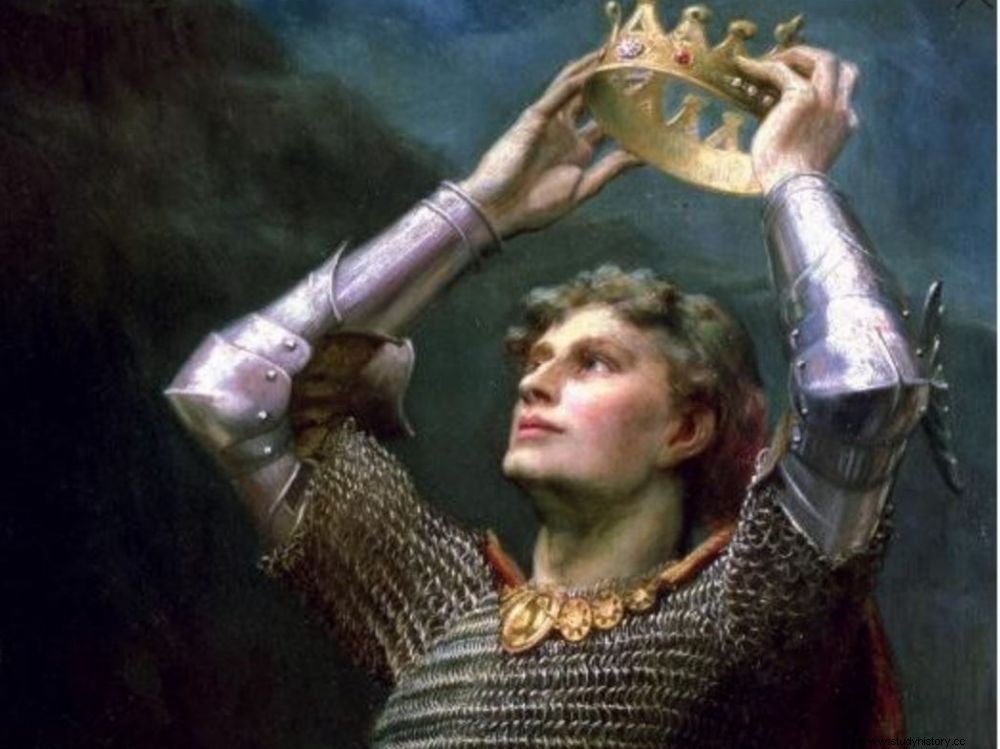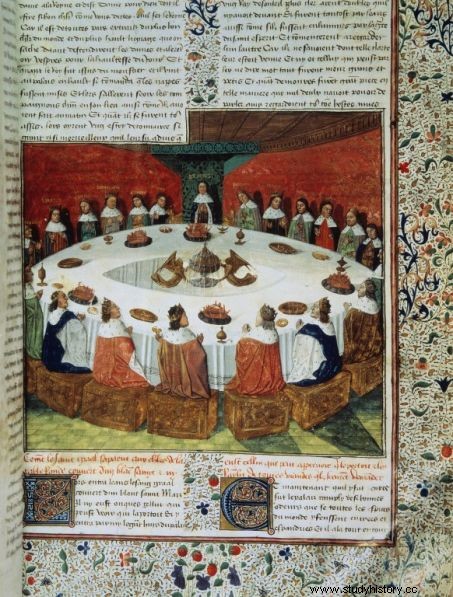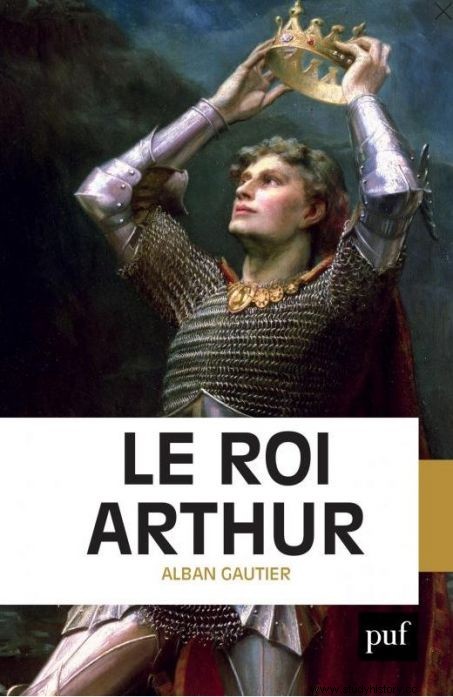In his book "Le roi Arthur", the medievalist Alban Gautier, professor of medieval history at the University of Caen-Normandy, returns to the mystery of Arthur, an elusive king whose legend and history merge... Alban Gauthier was the guest of our Twitch channel Thursday, May 20, 2021.

Portrait of King Arthur, painted by C.E Butler, in 1903.
This interview with Alban Gautier was first published on the Sciences et Avenir website. on February 14, 2019. The historian, specializing in the Middle Ages of the British Isles, was the guest of our Twitch channel on May 20, 2021.
For more than 1000 years, the figure of Arthur and the Arthurian universe has permeated the history of the medieval West. With his Round Table, his sword Excalibur, and his knights Lancelot or Perceval launched in the quest for the Grail, the adventures of this king and his companions oscillate between history and legend. But if it is not at all certain that a king named Arthur never existed, proving his non-existence seems just as impossible…, explains Alban Gautier, specialist in the history of Great Britain and the Northern Europe of the first centuries of the Middle Ages, in this new very detailed historical investigation which has just been published by PUF editions.
"Could Ambrosius be Arthur?"
Science and Future:The mystery of Arthur's existence has endured for centuries. What makes this "king" ambiguous?
Alban Gautier: The enigmatic status of this character is due to the very close links that legend and history have woven since his appearance. The document in which Arthur's name is mentioned for the first time dates from 830. It is "L'Histoire des Bretons", an anonymous work written in Wales. In this work, where he is quoted twice, Arthur is depicted sometimes as a knight having existed three centuries before, having made war and won victories; and sometimes as a figure associated with a fabulous world. The difficulty of this version being - as for all those which will follow -, to find historical traces of the existence of Arthur around 500, in Great Britain. It is indeed a period for which we have virtually no sources, hence the attribution of the term "Dark Ages". The only known creation from this period is the treatise of the monk Gildas (De excidio Britanniae ), where Arthur's name is not mentioned.
However, in the "History of the Bretons", the victory of one of the battles cited by Gildas is attributed to Arthur….
Indeed. The Treaty of Gildas evokes a victory at Mount Badon, which "The History of the Bretons" , written around 830 therefore, attributed to Arthur. But if Gildas does not mention the name of Arthur, he evokes for this victory that of a certain Ambrosius aurélianus . Could this Ambrosius be Arthur? There are only two possibilities:either Ambrosius and Arthur are different names for the same person. Either no. Subsequently, in Welsh legends, Ambrosius will be confused with Merlin (the enchanter)… But nothing tells us that originally it was not the same character. We must never forget the oral tradition and the distortion of transmissions.

Arthur and the Knights of the Round Table ©Josse /Leemage/AFP
"Arthur always met the spirit of his time"
What is the history of the Arthurian legend?
After "The History of the Bretons in 830, the legend of Arthur developed widely in Wales. With always this ambivalence between fabulous stories and others - in Latin or Welsh - which try to place Arthur in a chronological story. Arthur also becomes, in some versions, a champion of Christianity. Above all, in 1135, a cleric of Welsh origin, Geoffrey of Monmouth (1095-1155) published "The History of the Kings of Brittany », where he completely reinvents the story of Arthur. On fifty pages, - where previously there were only one or two paragraphs - it recounts his exploits, his conquests and his reign. This story was a huge success for the time, and even had the effect of a "bombshell" throughout the Latin West! No non-religious work had hitherto enjoyed such literary success. It will be necessary to wait until 1605, and the masterpiece of Cervantes, Don Quixote , for a story to be such a resounding success again! From Latin, History of the Kings of Brittany is translated into French, German, Italian, Catalan, Icelandic, Castilian, Portuguese, Dutch, Norwegian… In the 13 th century, several thousand pages are devoted to Arthur!
Around 1155, a Norman author named Wace, invented the Round Table, the one around which Arthur gathered his knights. This new work, which adapts that of Geoffrey of Monmouth, in turn meets with immense success. However, the Arthurian legend really gets going with two authors. The first is Chrétien de Troyes (1130-1190?) in France:Arthur then finds himself surrounded by knights among whom, for the first time, Lancelot and Perceval, and where he introduces the quest for the Holy Grail (this cup supposed to have contained the blood of Christ); The second is the Englishman Thomas Malory and his "Morte Darthur at the end of the 15th th century. The Arthurian legend will be successful again in the 19 th century, in the Victorian era, thanks to the rise of romanticism and the rediscovery of the Middle Ages. The poet Alfred Tennyson (1809-1892) even devoted half of his work to it.
How to explain that the success of this character continues in the XXI th century?
The "Arthurian material" has become a reservoir of stories, whether in the cinema with films like Excalibur by John Boorman (1981) or parodies - a sign of the popularity of the story - such as Sacred Graal Monty Python (1975), or, more recently, the TV series Kaamelott by Alexandre Astier. Arthur has always met the spirit of his time!

Find out more:
King Arthur:historical or legendary figure? A biography explained by Alban Gautier , Paris, Frémeaux &Associés, coll. "Figures of History", 2018, 4 CDs (5 hours of listening
